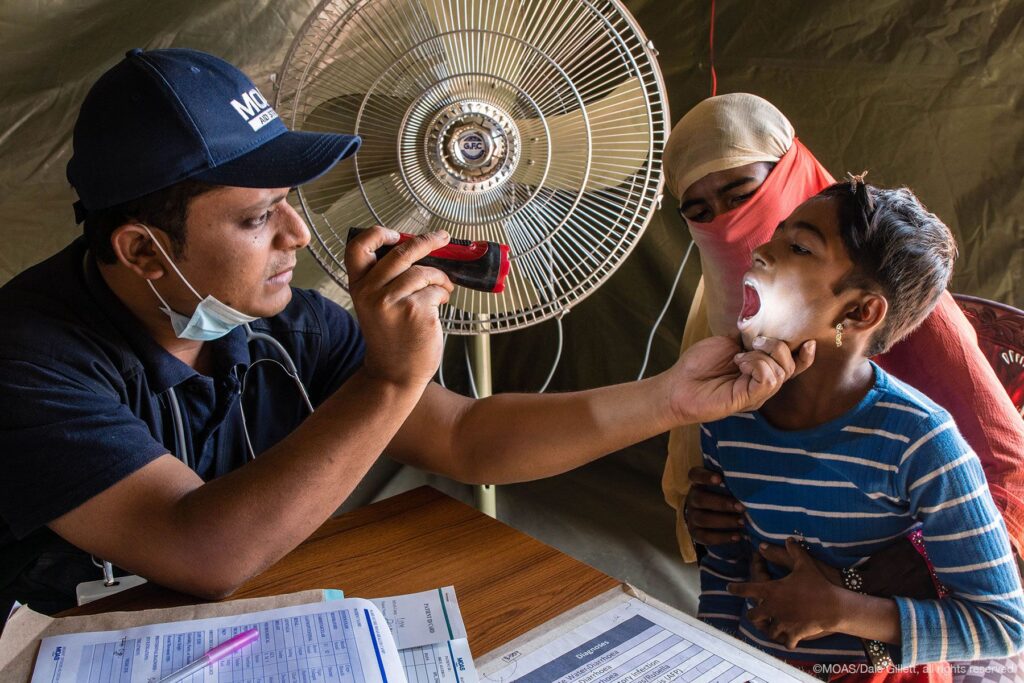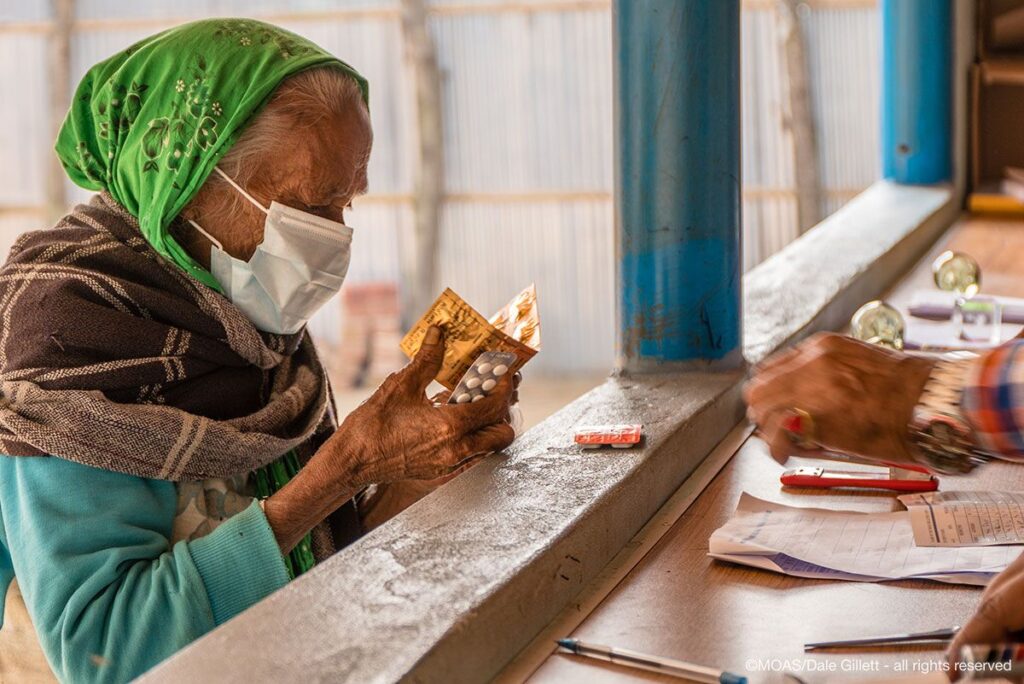 On the 7th April each year, World Health Day is celebrated around the globe, and since it was first recognised in 1950, the day has provided an opportunity to raise attention and focus global discussions on crucial aspects of global health. In light of the COVID-19 pandemic, this World Health Day, we want to highlight a vitally important global health issue; communicable diseases in refugee camps.
On the 7th April each year, World Health Day is celebrated around the globe, and since it was first recognised in 1950, the day has provided an opportunity to raise attention and focus global discussions on crucial aspects of global health. In light of the COVID-19 pandemic, this World Health Day, we want to highlight a vitally important global health issue; communicable diseases in refugee camps.
The outbreak of COVID-19, a highly contagious disease, has led to considerable concern being raised over the safety of the tens of millions of refugees and displaced people around the world. However, the risks posed by communicable diseases are a continual and worrying concern for those living in refugee camps far beyond this particular pandemic. In this blog, we will highlight what communicable diseases are, why refugee camps are particularly susceptible to their transmission and spread, and the major concerns over the potential impact of the COVID-19 pandemic on refugee camps around the world.
Communicable diseases and refugee camps
Communicable diseases are illnesses caused by microorganisms, including viruses, bacteria and parasites. They can be transmitted from one person to another, both directly and indirectly, and can spread through a variety of methods, such as contact with contaminated objects or surfaces, exposure to infective bodily fluids, insect bites, or through the air.
Although those living in refugee camps are susceptible to a multitude of health risks, according to a UNHCR (the UN Refugee Agency) investigation on refugee health, the greatest risks to health in refugee camps and the greatest causes of morbidity and mortality among refugees are stated to be communicable diseases. These include, but are not limited to, malaria, HIV, cholera, Tuberculosis (TB), Ebola and measles.
This susceptibility to outbreaks of communicable diseases has been primarily attributed to the overcrowded living conditions those living in refugee camps are often facing, as well as poor sanitation and hygiene infrastructure or shared water sources, and limited or absent health care services. It is also important to consider that numerous refugee and displaced populations have often fled countries facing conflict, instability and other humanitarian crises, where preventative measures, such as vaccinations and health education, are often limited or absent. Such factors create ideal conditions for the spread of communicable diseases in refugee camps. In addition to this, co-morbidity issues, such as malnutrition or weakened immune systems through stress and lack of sleep, make the body less resilient to these diseases, meaning such populations are not only particularly susceptible to the spread, but also suffer severe symptoms and have might mortality rates.
As a result of these factors, numerous outbreaks of communicable diseases have occurred in refugee camps in recent years. For example, cholera outbreaks occurred throughout refugee camps in Kenya as a result of a lack of fresh drinking water and poor hygiene conditions in 2015/2016. Furthermore, widespread cases of diphtheria were reported among Rohingya refugees in Bangladesh in 2017, which were attributed to a combination of low vaccination coverage and overcrowded living conditions.
Refugee camps and their vulnerability to COVID-19
In the wake of the COVID-19 pandemic, several refugee agencies and humanitarian organisations have expressed major concern for the health of the millions of people living in refugee camps around the world. This was articulated by Jan Egeland, Secretary General of the Norwegian Refugee Council in a recent statement:
“Millions of conflict-affected people are living in cramped refugee and displacement sites with desperately poor hygiene and sanitation facilities. When the virus hits overcrowded settlements in places like Iran, Bangladesh, Afghanistan and Greece, the consequences will be devastating. We must act now.”
Although fears over the transmission of COVID-19 bare many similarities to the aforementioned causing factors of outbreaks of communicable diseases in refugee camps, further apprehension has been raised as a result of a lack of testing facilities available to refugees, as well as restrictions to movement of aid workers from refugee agencies and humanitarian organisations. In addition, whilst the basic advice for protecting against COVID-19 is focused on social distancing and handwashing, such measures are incredibly difficult to undertake in refugee camp contexts where movement of residents is often restricted and population density is incredibly high.
In response to the pandemic, the UNHCR has issued an urgent appeal for US$255 million to reduce the potential impact of COVID-19 outbreaks on vulnerable refugee communities. The agency intends to use the funds to deliver vital testing equipment and medical supplies, install handwashing stations in refugee camps and settlements, and to launch public information campaigns on protection from the virus.
Although most aid agencies have had to cancel non-essential programs and restrict entry into refugee camps, such organisations are working extremely hard to continue providing essential aid relating to health, hygiene and nutrition, whilst undertaking major efforts, such as distributing basic hygiene equipment and establishing isolation zones, to combat the spread of COVID-19.
In line with the above, MOAS itself has suspended non-essential programming and is redirecting resources and capacities to COVID-19 responses to help bolster the crisis affected communities in which we work against the oncoming spread.
On this World Health Day, when the term health has taken a new significance due to the global spread of COVID-19, MOAS is taking the opportunity to recognise the health risks and challenges posed by communicable diseases to those living in refugee camps, and emphasise the urgent need to support the extremely vulnerable displaced populations around the world during this unprecedented time.
If you are interested in the work of MOAS and our partners, please follow us on social media, sign up to our newsletter and share our content. You can also reach out to us any time via [email protected]. If you want to support our operations, please give what you can at www.moas.eu/donate.


